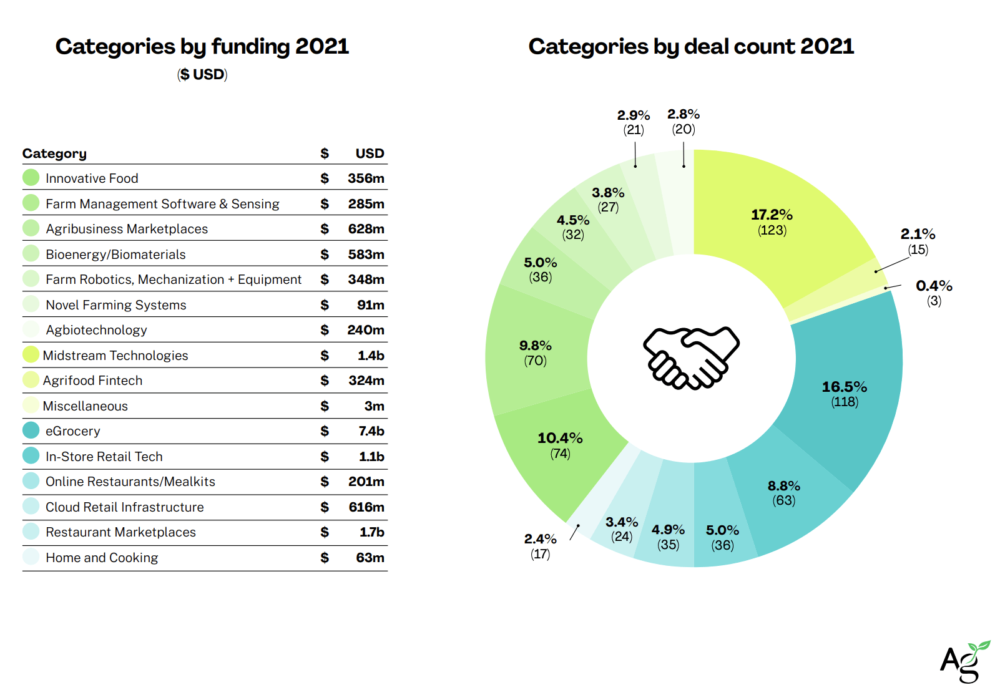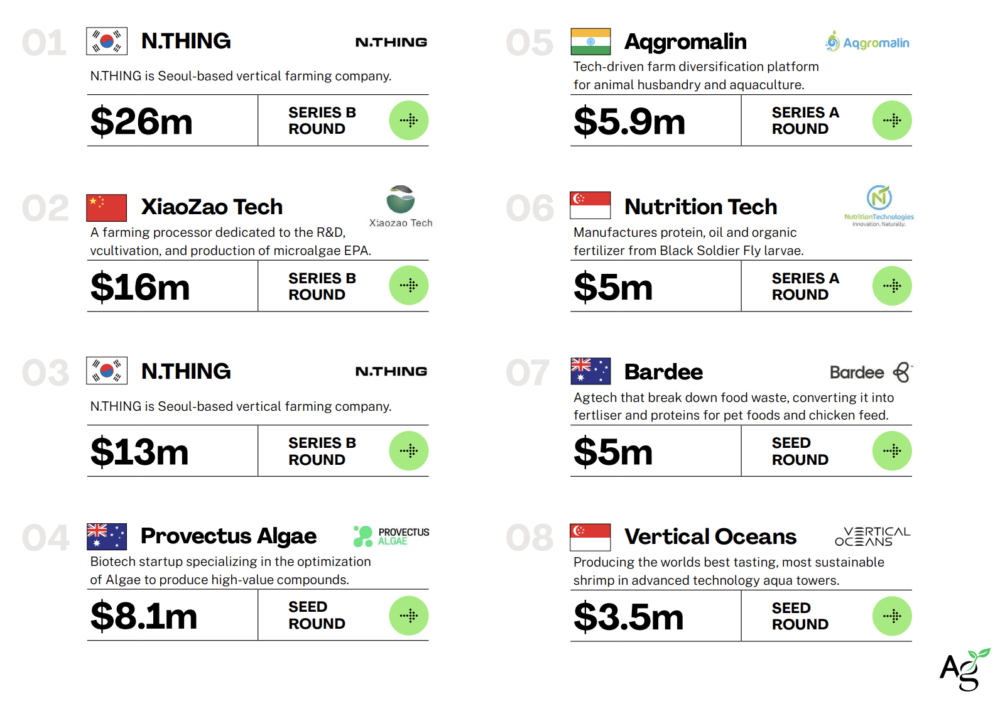Data Snapshot is a regular AFN feature in which we analyze agrifoodtech market investment data provided by our parent company, AgFunder.
Click here for more research from AgFunder and sign up to our newsletters to receive alerts about new research reports.
The Novel Farming Systems category in Asia-Pacific (APAC) is a critical one when thinking about overall food security for the region. APAC, after all, is home to roughly 60% of the world’s population. But with an aging population and a lack of arable land available for growing/raising food, alternative systems are poised to play a vital role in keeping people fed.
Take Singapore, for example. More than 90% of Singapore’s food is imported, and just 1% of its land available for food production, according to the Singapore Food Agency (SFA). In world of fragmented supply chains, geo-political conflict and other barriers, the city-state is bolstering innovation to produce more of its food at home. And it’s not alone.
Enter Novel Farming Systems, an AgFunder-defined category that includes controlled environment agriculture (vertical farms, greenhouses, etc.) as well as tech-enabled insect, seafood, cannabis, and algae production.
Asian startups in the category raised a total of $91 million in 2021, according to according to AgFunder’s first-ever Asia-Pacific AgriFoodtech Investment Report. It’s a small slice of the region’s overall agrifoodtech investment pie, but the category is poised to grow thanks to the need for alternative farming systems, labor shortages and crop losses, to name a few.
Novel Farming Systems deals by country:
Korea raised the most funding of any APAC country, thanks to two rounds from indoor farming startup N.THING. Two strategics invested in N.Thing’s rounds: energy company E1 and KT&G, South Korea’s largest tobacco company.
Perhaps surprisingly, India closed the most deals in the category over a mix of formats. Additionally, the country raised the second-highest in VC funds, with $17.9 million.
China came next, with $15.7 million, followed by Australia’s $13.1 million. Despite its long history in urban farming, just three Singaporean startups raised funding in 2021, for a total of $10.1 million.
Driving future growth
One reason APAC’s VC investment was smaller than many other sectors is the maturity of the technologies and systems. Unlike other parts of the world, where “Novel Farming Systems” is practically synonymous with “vertical farming,” APAC’s top deals cover a wide variety of formats and focus areas: algae production, shrimp farming, insects and waste-to-fertilizer systems.
Many of these areas are young, with technologies and business models still being realized. But APAC’s top deals for Novel Farming Systems remind us there’s so much more to the category than growing leafy greens and indoors. As demand for greater food security and traceability increases, so too will the size of the rounds in this category.







